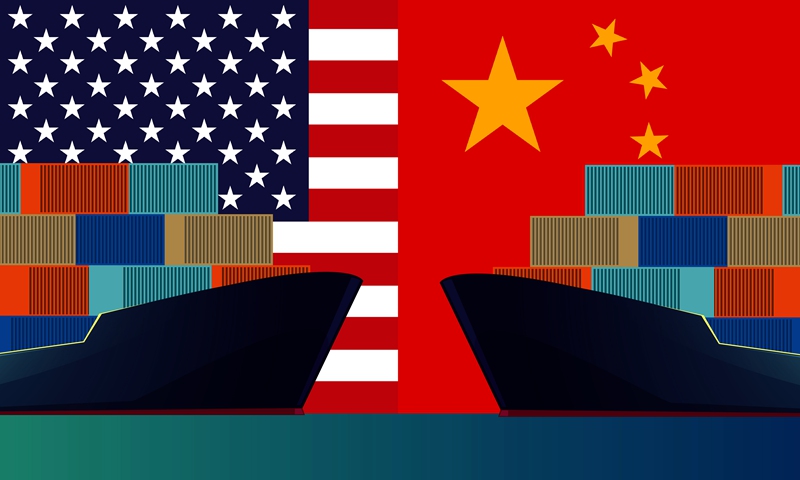US' attempt to cut trade ties with China over lies about Xinjiang only hurts its ailing economy

Photo: Global Times
US politicians this week launched another round of malicious attacks on China over fabricated human rights accusations in Northwest China's Xinjiang Uygur Autonomous Region. Following a wanton visa restriction announced by US Secretary of State Antony Blinken on Monday, a bipartisan-sponsored bill introduced on Tuesday threatened to block normal bilateral trade relations.
The legislation, which was co-sponsored by New Jersey Republican Representative, Chris Smith, New York Democrat Representative, Tom Suozzi and Wisconsin Republican, Tom Tiffany, aims to block China from engaging in normal trade with the US as "punishment," according to Fox News.
While US politicians are busy pointing fingers on human rights conditions in Xinjiang with groundless claims, Chinese State Councilor and Foreign Minister, Wang Yi, attended a session of the Organization of Islamic Cooperation (OIC) Council of Foreign Ministers on Tuesday, showing the continuous development of bilateral relations and the further enhancement of mutual trust between China and the Islamic world.
By starting another round of attacks on China over human rights issues and threatening to further sabotage soured China-US trade ties, some politicians in Washington are attempting to disrupt the momentum of Chinese economy and interfere with the cooperation between China and Islamic countries. Yet, such ill-intentioned moves are doomed to fail.
First and foremost, the false accusations by US politicians on human rights issues in Xinjiang are pure political lies without facts. In fact, the worst human rights violations in the world were committed by no other than the US. In response to Washington's latest visa restriction, Chinese foreign ministry spokesperson Wang Wenbin, said on Tuesday that the US should immediately revoke its so-called sanctions. Otherwise, China shall take reciprocal countermeasures in response.
Based on such political lies, Washington is now threatening to sabotage China-US trade that is largely valuable for the American economy. The mutual beneficial trade relationship is currently suffering setbacks due to the Trump administration's arbitrary trade war against China. The tariffs imposed by Trump on Chinese goods are largely hurting the interests of the US business community and are making ordinary US consumers pay heavy prices for the wrong China policy.
While the Biden administration insists on levying tariffs on Chinese goods as leverage to contain China's rise, the US economy is suffering from a skyrocketing inflation and rising public discontent. The US consumer price index for February rose to a high of 7.9 percent, a level never seen since January 1982. If the US government continues to neglect rising domestic dissatisfaction, it will experience a backlash when its economy faces troubles in the future.
The US economy is highly dependent on its imports from the world's manufacturing center, China. Exports to China provide strong support for US jobs and companies and these are the simple economic truths facing politicians in Washington even if they are reluctant to admit them. The lesson Washington should draw from the failed Trump tariff war is that if it decides to further escalate soured bilateral trade ties, it may bring catastrophic results to the country's economy.
The stubbornness of Washington stems from its political environment that prioritizes an ideology-driven zero sum game over economic outcomes. Even though the hardliners against China clearly know that to block normal bilateral trade relations with Beijing is a self-destructive approach for the US economy, they are more inclined to avoid the criticism for being seen soft on China. It is hoped rational voices in Washington can stop this frenzied anti-China trend on the commerce and trade fronts before it is too late.
